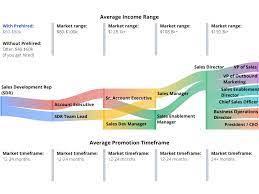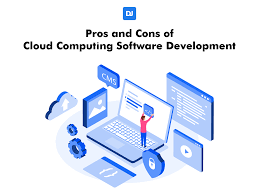The Role of a Digital Marketing Strategist in Today’s Business Landscape
In today’s fast-paced and highly competitive business landscape, having a strong digital presence is crucial for any organization looking to thrive. This is where the role of a digital marketing strategist comes into play. A digital marketing strategist plays a vital role in helping businesses navigate the complex world of online marketing and achieve their goals.
So, what exactly does a digital marketing strategist do? Simply put, they are responsible for developing and implementing effective digital marketing strategies that align with the overall business objectives. They have a deep understanding of various online channels such as search engine optimization (SEO), social media, content marketing, email marketing, paid advertising, and more.
One of the key responsibilities of a digital marketing strategist is to conduct thorough market research and analysis. This involves studying consumer behavior, identifying target audiences, and understanding competitors’ strategies. By gaining insights into these crucial aspects, they can create tailored campaigns that resonate with the target audience and stand out from the competition.
Once armed with this knowledge, the digital marketing strategist will develop comprehensive strategies that outline specific goals and objectives. These strategies will encompass various tactics across different platforms to ensure maximum reach and engagement. They will determine which channels are most suitable for reaching the target audience effectively and allocate resources accordingly.
Another critical aspect of a digital marketing strategist’s role is tracking and analyzing campaign performance. They utilize various analytics tools to measure key performance indicators (KPIs) such as website traffic, conversion rates, click-through rates (CTR), engagement metrics, and more. By monitoring these metrics regularly, they can identify areas for improvement or optimization and make data-driven decisions to enhance campaign effectiveness.
Furthermore, staying up-to-date with industry trends is essential for any successful digital marketing strategist. The online landscape is constantly evolving; new platforms emerge while algorithms change regularly. A skilled strategist keeps abreast of these changes to ensure that their strategies remain relevant and effective. They continuously learn and adapt their approaches to leverage emerging technologies and opportunities.
Collaboration is also a crucial aspect of a digital marketing strategist’s role. They work closely with various stakeholders, including marketing teams, content creators, designers, and developers. By fostering effective communication and teamwork, they ensure that everyone is aligned with the overarching marketing goals and that campaigns are executed seamlessly.
In conclusion, a digital marketing strategist plays a pivotal role in helping businesses thrive in the digital realm. By developing comprehensive strategies, conducting thorough research, tracking campaign performance, staying updated with industry trends, and fostering collaboration, they drive impactful online marketing campaigns that generate results. In today’s ever-evolving business landscape, partnering with a skilled digital marketing strategist can be the key to unlocking success in the digital realm.
Frequently Asked Questions About Digital Marketing Strategists
- What is a digital marketing strategist?
- How do you become a digital strategist?
- What skills are required for marketing strategist?
- What is the difference between a digital marketing specialist and strategist?
What is a digital marketing strategist?
A digital marketing strategist is a professional who specializes in developing and implementing effective digital marketing strategies for businesses. They play a crucial role in helping organizations achieve their marketing goals and maximize their online presence.
The primary responsibility of a digital marketing strategist is to create comprehensive strategies that leverage various online channels and tactics to reach the target audience effectively. They analyze market trends, consumer behavior, and competitors’ strategies to develop tailored campaigns that resonate with the intended audience.
Digital marketing strategists are well-versed in utilizing different online platforms such as search engines, social media, email marketing, content marketing, paid advertising, and more. They understand how these channels work individually and how they can be integrated to create cohesive and impactful campaigns.
Market research and analysis are key components of a digital marketing strategist’s role. They conduct thorough research to identify target audiences, understand their preferences, and determine the most effective ways to engage them. This involves studying demographic data, conducting surveys or focus groups, analyzing competitor strategies, and staying updated with industry trends.
Once armed with this knowledge, digital marketing strategists develop comprehensive plans that outline specific objectives, target metrics, budgets, timelines, and tactics. These plans serve as roadmaps for executing successful campaigns across various online channels. They allocate resources effectively and ensure that the strategies align with the overall business goals.
Tracking campaign performance is another crucial aspect of a digital marketing strategist’s role. They use analytics tools to measure key performance indicators (KPIs) such as website traffic, conversion rates, engagement metrics, return on investment (ROI), and more. By monitoring these metrics regularly, they can identify areas for improvement or optimization and make data-driven decisions to enhance campaign effectiveness.
In addition to technical skills and knowledge of online platforms, successful digital marketing strategists possess strong communication skills. They collaborate closely with various stakeholders such as marketers, content creators, designers, developers, and executives. Effective communication ensures that everyone involved understands the goals and objectives of the campaigns and works together towards achieving them.
Overall, a digital marketing strategist is a critical asset for businesses looking to establish a strong online presence and drive successful marketing campaigns. They bring expertise in developing strategies, analyzing market trends, leveraging online channels effectively, tracking performance, and fostering collaboration. With their guidance, businesses can navigate the complex world of digital marketing and achieve their desired outcomes.
How do you become a digital strategist?
Becoming a digital strategist requires a combination of education, experience, and skills. Here are some steps you can take to pursue a career as a digital strategist:
- Obtain a relevant education: While there is no specific degree required to become a digital strategist, having a background in marketing, communications, business, or a related field can be advantageous. Consider pursuing a bachelor’s degree or higher education that offers courses in digital marketing, analytics, consumer behavior, and strategic planning.
- Gain experience in digital marketing: Practical experience is crucial in becoming a digital strategist. Look for internships, entry-level positions, or freelance opportunities in digital marketing agencies or companies with robust online marketing departments. This hands-on experience will allow you to learn various aspects of digital marketing such as SEO, social media management, content creation, email marketing, paid advertising platforms, and analytics.
- Develop analytical skills: A strong understanding of data analysis is essential for a digital strategist. Familiarize yourself with tools like Google Analytics and other analytics platforms to gain insights into website performance and user behavior. Learn how to interpret data and use it to inform decision-making and optimize campaigns.
- Stay updated with industry trends: The digital landscape is constantly evolving; therefore, it’s crucial to stay current with the latest trends and emerging technologies in the field of digital marketing. Follow industry blogs and publications, attend webinars or conferences, participate in online courses or certifications to expand your knowledge base continuously.
- Hone your strategic thinking abilities: As a digital strategist, you’ll be responsible for developing comprehensive strategies that align with business goals. Sharpen your strategic thinking skills by analyzing market trends, studying competitors’ strategies, understanding target audiences’ behavior patterns and preferences.
- Cultivate communication and collaboration skills: Effective communication is vital when working as part of a team or collaborating with clients/stakeholders. Develop strong written and verbal communication skills to effectively convey your ideas, strategies, and reports. Collaborate with cross-functional teams and learn to work towards common goals.
- Build a portfolio: As you gain experience, create a portfolio that showcases your work and achievements in digital marketing. Include case studies, campaign results, and any notable projects that demonstrate your skills as a digital strategist.
- Network within the industry: Networking is crucial for career growth in any field. Attend industry events, join professional organizations or online communities related to digital marketing. Engage with professionals in the field to expand your network and stay updated on job opportunities.
Remember that becoming a successful digital strategist is an ongoing process of learning and adapting to the ever-changing digital landscape. Continuously develop your skills, stay curious, and be open to new challenges and opportunities that come your way.
What skills are required for marketing strategist?
Being a successful marketing strategist requires a combination of both technical and soft skills. Here are some key skills that are essential for a marketing strategist:
- Strategic Thinking: A marketing strategist must possess strong strategic thinking abilities. They should be able to analyze market trends, consumer behavior, and competitive landscapes to develop effective marketing strategies aligned with business goals.
- Data Analysis: Proficiency in data analysis is crucial for a marketing strategist. They should be able to interpret and derive insights from various metrics and analytics tools to make data-driven decisions and optimize campaigns.
- Market Research: Conducting thorough market research is essential for understanding target audiences, identifying market opportunities, and staying ahead of competitors. A marketing strategist should have the ability to gather, analyze, and interpret relevant data to inform their strategies.
- Digital Marketing Knowledge: In today’s digital age, a strong understanding of digital marketing channels is vital. A marketing strategist should be well-versed in areas such as SEO, social media marketing, content marketing, email marketing, paid advertising, and other online platforms.
- Creativity: Creativity plays a crucial role in developing innovative campaigns that capture attention and engage audiences. A marketing strategist should possess creative thinking abilities to develop unique ideas and concepts that resonate with the target audience.
- Communication Skills: Effective communication is essential when working with cross-functional teams or presenting strategies to stakeholders. A marketing strategist should be able to articulate their ideas clearly, listen actively, and collaborate effectively with others.
- Adaptability: The digital landscape is constantly evolving; therefore, adaptability is key for a marketing strategist. They should stay updated with industry trends, emerging technologies, and changes in algorithms to ensure their strategies remain relevant and effective.
- Project Management: Strong project management skills are necessary for overseeing multiple campaigns simultaneously while meeting deadlines and managing resources efficiently.
- Analytical Thinking: Analytical thinking allows marketers to break down complex problems into smaller components, identify patterns, and make informed decisions. A marketing strategist should possess strong analytical skills to assess campaign performance and optimize strategies accordingly.
- Leadership Abilities: A marketing strategist often leads teams and collaborates with various stakeholders. Strong leadership skills, including the ability to inspire, motivate, and guide others, are crucial for success in this role.
While this list is not exhaustive, possessing these skills will provide a solid foundation for a marketing strategist to excel in their role and drive successful marketing campaigns.
What is the difference between a digital marketing specialist and strategist?
While the terms “digital marketing specialist” and “digital marketing strategist” are often used interchangeably, there are some subtle differences in their roles and responsibilities. Here’s a breakdown of the key distinctions:
Scope of Work: A digital marketing specialist typically focuses on executing specific tactics or channels within the overall digital marketing strategy. They may specialize in areas such as search engine optimization (SEO), social media management, content creation, email marketing, or paid advertising. Their expertise lies in implementing and optimizing campaigns within their specialized area.
On the other hand, a digital marketing strategist takes a broader view and is responsible for developing the overarching digital marketing strategy. They analyze market trends, conduct research, identify target audiences, set goals, and determine which channels and tactics will be most effective in achieving those goals. Their role is more strategic and involves creating cohesive plans that align with the organization’s objectives.
Skill Set: A digital marketing specialist possesses deep knowledge and expertise in their specific area of specialization. They have hands-on experience with tools, platforms, and techniques related to their field. For example, an SEO specialist would be well-versed in keyword research, on-page optimization, link building strategies, and technical SEO aspects.
On the other hand, a digital marketing strategist needs to have a comprehensive understanding of various digital marketing channels and how they work together synergistically. They should possess strong analytical skills to interpret data and make informed decisions about campaign optimization. Strategic thinking, market research abilities, project management skills, and excellent communication are also essential for this role.
Responsibilities: The primary responsibility of a digital marketing specialist is to execute specific tasks within their area of expertise. They implement campaigns based on predefined strategies provided by the strategist or team lead. Specialists focus on day-to-day operations like creating content calendars, managing social media accounts, optimizing ad campaigns or website performance.
In contrast, a digital marketing strategist takes ownership of developing strategies from scratch. They conduct market research, define target audiences, set goals, create campaign plans, allocate budgets, and monitor overall performance. They collaborate with specialists and provide guidance to ensure that the execution aligns with the strategic objectives.
Level of Experience: Digital marketing specialists typically have a more specialized skill set and may have acquired certifications or specific training in their area of expertise. They often gain experience by working hands-on with specific tools and platforms.
Digital marketing strategists usually have a broader understanding of the digital marketing landscape and possess a higher level of experience in strategic planning and campaign management. They may have worked across various digital marketing channels and have experience in managing multiple campaigns simultaneously.
In summary, while both roles contribute to the success of digital marketing efforts, specialists focus on executing specific tactics within their area of expertise, while strategists take a broader view by developing comprehensive strategies that align with business objectives.



